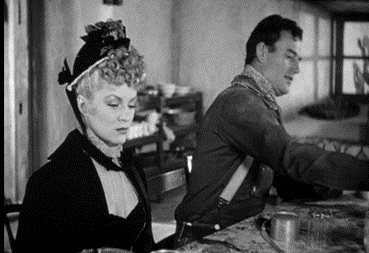Emerson’s Vision of America in John Ford’s "Stagecoach"
DOI:
https://doi.org/10.58519/aesthinv.v3i2.11940Keywords:
Emerson, Literary Nationalism, American identity, John Ford, StagecoachAbstract
When Ralph Waldo Emerson addressed the Phi Betta Kappa Society in 1837 at Harvard College, his directives included the establishment of an American literary tradition derived from the unique experience of his fellow citizens in a new context that included a wild frontier. He sought to establish a different moral foundation built on a romantic sense of spiritual attachment to nature. This essay extends the new American grain and ground Emerson’s directives in a truly original and unique American artistic genre – the western film. My thesis is simply that John Ford’s elevation of the western film to artistic status with 1939’s Stagecoach is a uniquely appropriate fulfilment of Emerson’s call in the “American Scholar” for genre elevation, literary nationalism, romantic moral sentiment, and ultimately for confirming an American mythology that articulated and reinforced a native self-identity.
References
Bazin, A., H. Gray, D. Andrew, J. Renoir, and F. Truffaut. 2005. What Is Cinema?: Volume II. What is Cinema? Berkeley: University of California Press.
Buscombe, E. 1992. Stagecoach. BFI Film Classics. London: British Film Institute.
Emerson, R.W. 2003. Selected Essays. Penguin Books, Limited.
Eyman, S. 2015. Print the Legend: The Life and Times of John Ford. New York: Simon & Schuster.
Gallagher, T. 1986. John Ford: The Man and His Films. Film/Theater. Berkeley: University of California Press.
Grant, Barry Keith. 2003. John Ford’s Stagecoach. Cambridge Film Handbooks. Cambridge University Press.
Hardy, P. 1984. The Encyclopedia of Western Movies. Minneapolis: Woodbury Press.
Nichols, D., and J. Ford. 1984. Stagecoach: A Film by John Ford and Dudley Nichols. Classic and modern Film Scripts. London: Lorrimer Publishing.
Richardson, R.D. 1995. Emerson: The Mind on Fire: a Biography. A centennial book. Berkeley: University of California Press.
Sennett, T. 1990. Great Hollywood Westerns. New York: American Film Institute Press.
Slotkin, R. 1992. Gunfighter Nation: The Frontier Myth in 20th Century America. New York: Athenaeum.
Stowell, P. 1986. John Ford. Filmmakers Series. Boston: Twayne Publishers.

Downloads
Published
Issue
Section
License

This work is licensed under a Creative Commons Attribution 4.0 International License.
Authors who publish with this journal agree to the following terms:
Authors retain copyright and grant the journal right of first publication with the work simultaneously licensed under a Creative Commons Attribution License that allows others to share the work with an acknowledgement of the work's authorship and initial publication in this journal. Note: up to volume 4 issue 1, an incorrect copyright line appears in the PDFs of the articles.
Authors are able to enter into separate, additional contractual arrangements for the non-exclusive distribution of the journal's published version of the work (e.g., post it to an institutional repository or publish it in a book), with an acknowledgement of its initial publication in this journal.
Authors are permitted and encouraged to post their work online (e.g., in institutional repositories or on their website) prior to and during the submission process, as it can lead to productive exchanges, as well as earlier and greater citation of published work (See The Effect of Open Access).





